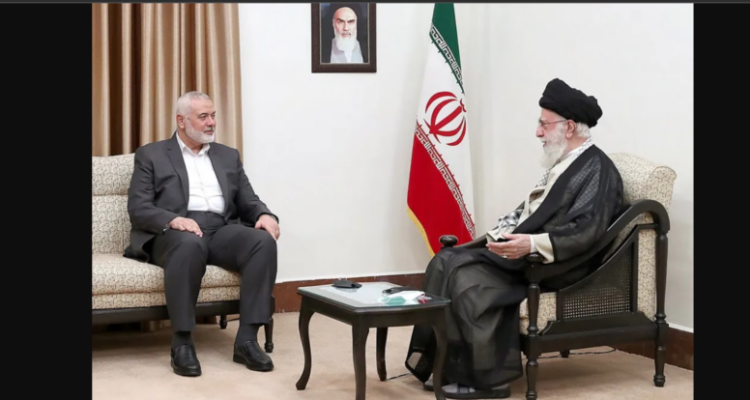Iran forced Hamas to delay to October 7, the day after the 50th anniversary of the Yom Kippur War and a holiday unto itself.
By Batya Jerenberg, World Israel News
Hamas’ October 7th surprise invasion of Israel that set off the ongoing war with the terrorist organization was originally slated to take place on the first night of Passover, Maariv reported Sunday evening.
Journalist Ben Caspit wrote that it was Iran, which arms and finances the group that holds the Gaza Strip in its steel grip, that ordered the six-month delay.
The intelligence information was provided, he wrote, by Hamas terrorists taken prisoner after taking part in the murder of 1,400 Israeli civilians and soldiers on the holiday of Simchat Torah, that fell out on what Israelis are now calling the “black Sabbath.” Another 250 were taken as hostages back to the Gaza Strip.
Iran chose this secondary date specifically because it fell one day after the 50th Georgian anniversary of the start of the Yom Kippur War, October 6, 1973, the terrorists told their interrogators, according to the report.
That attack, like this one, came as a complete shock to Israel, because although government leaders of the time had received warnings that Egypt and Syria were planning to strike that day, they did almost nothing to prepare for it.
Caspit added that it was uncertain as yet how reliable the revelation is.
No reason was given for the Iranian demand to push off the deadly incursion, but Caspit ventured that Iran and the U.S. had been negotiating at the time about the exchange of five American prisoners it was holding for $6 billion in Iranian funds frozen in South Korea.
The detainees, who were convicted of being spies but whom the Americans had considered innocent hostages, landed home in September. The money, which had in the meanwhile been transferred to Qatar, has not been passed on to Tehran yet.
Although the Biden administration has not officially agreed with Israel’s position that Iran stands behind its proxy’s mass slaughter, the White House asked that Doha freeze the funds five days after the Hamas invasion, and the Qataris acceded to the request.
Iran, which has denied any involvement in the assault, immediately demanded that the U.S. fulfill its side of the bargain.
Some Hamas officials have admitted that Iran’s Islamic Revolutionary Guards Corps had a hand in the planning and tactics of the attack while others denied it, although acknowledging Tehran’s steadfast funding and supply of weaponry.
The original date would have also raised horrific memories for Israelis. On Seder night 2002, a Hamas terrorist, Abdel-Basset Odeh, entered the Park Hotel in Netanya disguised as a woman and carrying a suitcase full of explosives. He walked into the dining room packed with families about to celebrate Passover and detonated the valise, murdering 30 and wounding some 140, twenty of them severely. Most of the victims were elderly.
The massacre was the culmination of the Second Intifada begun by the Palestinian Authority (PA), in which over a thousand Israelis had been murdered in terror attacks following the Oslo Accords. Israel announced Operation Defensive Shield and invaded the PA to take back security control over its major terror centers.




